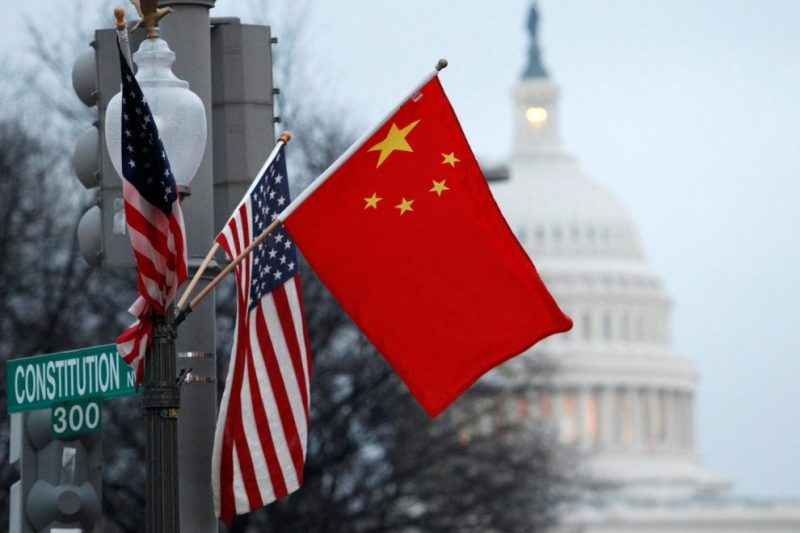American investors in Chinese stocks listed in the US have $1.1 trillion at risk as equity markets in the world’s two biggest economies drift towards decoupling.
All 248 Chinese companies listed on US exchanges will be forced to delist within three years if they fail to comply with US audit norms. There’s no sign China will bend and since July it has issued new regulations that make it even more difficult for Chinese companies to comply with US audit requirements.
Caught in the middle are American and international investors in Chinese companies. On one hand, they’re desperate to capture the upside growth potential of China’s best companies, especially after share prices were beaten down by President Xi Jinping’s crackdown on big tech companies and property developers. On the other hand, there’s the risk that the delisting process turns ugly, leaving them with big losses.
US MARKET INSIGHTS: China Stocks Delisting From US: Everything You Need to Know
“The US has shown a willingness to play hardball,” says Andrew Kapyrin, partner and co-head of investments with New Jersey-based Regent Atlantic, an investment advisory firm with $5.2 billion under management. “Even if that means leaving US investors holding the bag.”
It wouldn’t be the first time foreign investors have lost out. The recent fraud scandal at China’s Luckin Coffee left US investors out of pocket and may have helped push the issue to the fore.
In May 2019 Luckin Coffee raised $561 million through the sale of 33 million American depositary shares. They quickly soared almost threefold to more than $50.
But the coffee went cold quickly. In early 2020, San Francisco-based research firm Muddy Waters issued a report alleging massive fraud at Luckin. In April of that year, the SEC suspended trading in its shares and later hit the company with a $180 million fine for “intentionally and materially” overstating 2019 revenue and understating a net loss.
In all, the SEC alleged that Luckin fleeced US investors of more than $864 million through its IPO and debt instruments – all rendered close to worthless after the company filed for bankruptcy protection in the US under Title 15 in February 2021.
ALSO ON AF : Six Biggest China Stocks Facing US Delisting Worth $1 Trillion
SEC Loses Power Of Discretion
The US Congress responded by passing the Holding Foreign Companies Accountable Act (HFCA) in December 2020. The SEC quickly followed suit, issuing implementing regulations in March 2021.
Under the new law, if the Public Company Accounting Oversight Board (PCAOB) certifies it has not been able to review a company’s audits for three consecutive years, the SEC must delist it. Previously, the SEC could exercise its discretion.
“What regulator wants to see more than 200 companies migrate to markets overseas and over $2 trillion go out the door?” said Shaswat Das, Counsel with King & Spalding in Washington DC. “The Securities and Exchange Commission was reluctant to act, but now it has to.”
US and Chinese markets are deeply intertwined. Research firm Rhodium Group estimates US and Chinese investments in each other’s stock and bond markets totalled as much as $3.3 trillion as of the end of 2020. US investors own about $1.1 trillion in Chinese stocks and about $100 billion in debt instruments, it estimates. Chinese holdings of US treasuries alone total about $1.1 trillion.

Some investors remain hopeful that the broader issue of compliance with US audit review requirements for Chinese companies can be tackled without wrenching market disruption. “The clock started ticking in 2021 and lasts for three years,” says Joel Greenberg, Senior Counsel with legal advisory firm Arnold & Porter. “It was deliberately set up that way to prevent things from going to a mass delisting, to give both sides time to work things out to avoid an outcome neither side really wants.”
But China’s position is hardening. It tightened restrictions on overseas listings via tighter supervision of the American depositary receipts Chinese companies use to list in the US. And the Cyberspace Administration of China declared in July that any company with data of more than 1 million users must undergo a security review before listing overseas. The security reviews will focus on the risks of data being controlled or manipulated by foreign governments after overseas listings, it said.
“I don’t see any reason China should not comply with the same rules the US applies to companies from every other country in the world,” says George Calhoun, founding director of the Quantitative Finance Program at Stevens Institute of Technology. “But I don’t think they will, so I think there will be a mass exodus as companies are forced to delist.”
Investors May Become ‘Pawns’ in US-China Decoupling
With both sides digging in, is mass delisting inevitable?
“We are on a path towards delisting,” says Michael Wessel, Commissioner of the US-China Economic and Security Review Commission, a Washington DC-based independent US government agency that evaluates China risk and reports to Congress and the president. “I don’t see the administration or Congress taking us off that path.”
So, what will it look like as deadlines edge ever closer if no compromise can be reached?
“As the time gets close, I see a glut of shares in these companies as investors will have to start dumping them,” says Greenberg. “This will push down prices.”
Investors may “become pawns, or even financial hostages, in the fight between China and the US,” wrote analyst Fraser Howie in an Enodo Economics research note.

Sooner Rather Than Later
That day may come sooner rather than later. The plunge in prices of some Chinese stocks could prompt automatic delisting from US exchanges. Both Nasdaq and the NYSE begin delisting procedures once a firm’s shares fall below $1 for more than 30 business days. Companies that breach this limit are given a compliance period of six months to come back in line with exchange rules, so the firms would have some time to tackle the problem.
Oddly, US investors seem to be ignoring the risk. During the multi-step process that sees bills become law, the S&P China 50 Index rose steadily, from about 4,330 at the end of November 2020, just before the House of Representatives passed the HFCAA, to more than 4,660 at the end of December – after President Biden signed it into law. The index rose even further, to more than 5,300 by February, but has since settled in the 4,200 range, the same level as before the delisting law.
Still, Chinese online education firms have been hit particularly hard by Beijing’s regulatory crackdown on private tutoring firms. Gaotu Techdu Inc’s shares plunged from more than $149 to as low as nearly $2 while TAL Education Group dropped from almost $91 per share to close to $4.
”Investors who own Chinese shares are exposing themselves to serious risk,” says Kapyrin. “Unless you are the kind of investor who can follow this quickly and respond immediately as news breaks, you could end up being one of those bag holders.”
- Neal McGrath
Read more:
Which Chinese stocks could be delisted?
Chinese Stocks Delisting From the US: 25 On the Brink
JD.com, Pinduoduo Among 80 Firms Added to US Delisting Register
























